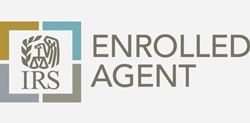
Table of Contents
Who is an Enrolled Agent?
An Enrolled Agent (EA) refers to a tax professional authorized by the US government to represent taxpayers in Internal Revenue Service concerns (IRS).

EAs must pass a test or have adequate experience working for the IRS, as well as a background check. Due to problems with Civil War loss claims, enrolled agents first appeared in 1884.
Briefly About Enrolled Agents
An enrolled agent is a federally certified tax practitioner with unrestricted authority to represent taxpayers in front of the IRS for any collection, audit, or tax appeal matters. The National Association of Enrolled Agents (NAEA), which represents licensed EAs, asserts that they are permitted to counsel, represent, and prepare tax returns for individuals, corporations, partnerships, estates, trusts, and anything else required to report to the IRS.
Enrolled Agency's History
In the 1880s, there were no certified public accountants (CPAs), and there were no sufficient attorney standards. After bogus claims for Civil War losses were lodged, the enrolled agent profession arose. EAs who prepare Civil War claims and represent citizens in negotiations with the Treasury Department is regulated by Congress. President Chester Arthur passed the Horse Act into law in 1884 to establish and standardize enrolled agents.
When the 16th Amendment was ratified in 1913, EA responsibilities were expanded to include tax preparation and addressing IRS taxpayer issues. The NAEA was founded in 1972 by a group of enrolled agents who wanted to advocate EAs' interests and help them advance their careers.
Enrolled Agents' Requirements
College degrees are not necessary for EAs. Without taking the exam, an individual with five years of IRS taxation expertise may apply to become an enrolled agent. Every 36 months, they must complete 72 hours of continuing education. Without taking the exam, CPAs and attorneys can serve as enrolled agents.
The only tax professionals who do not need a state license are enrolled agents. They do, however, have a federal license that allows them to represent taxpayers in any state. They must follow the requirements of Treasury Department Circular 230, which establishes the rules for enrolled agents. Enrolled agents, the members of the NAEA, are bound by a code of ethics and professional conduct.
Talk to our investment specialist
Advantages of Hiring Enrolled Agent
Members of the NAEA are required to complete 30 hours of continuing education each year or 90 hours every three years, which is much higher than the IRS requirement. Enrolled agents assist businesses and individuals with Tax Planning, preparation, and representation. Other Tax Professionals vs Enrolled Agents
Unlike attorneys and CPAs who may not specialize in Taxes, enrolled agents must demonstrate their competency in all aspects of taxes, ethics, and representation.
The IRS does not employ any EAs. Furthermore, when representing customers and selling their services, they are unable to display their credentials. They can't use the phrase "certified" as part of a title or imply that they work for the IRS.
Enrolled Agents' Prospects
Because the growth of the tax examiner sector is directly related to changes in federal, state, and local government budgets, the hiring of tax examiners is expected to fall by 2% from 2018 to 2028. The enrolled agent Industry's growth is determined by industry rule changes and the demand for tax services. However, private and public Accounting firms, legal firms, corporations, municipal and state government agencies, and banks need EAs.
All efforts have been made to ensure the information provided here is accurate. However, no guarantees are made regarding correctness of data. Please verify with scheme information document before making any investment.





